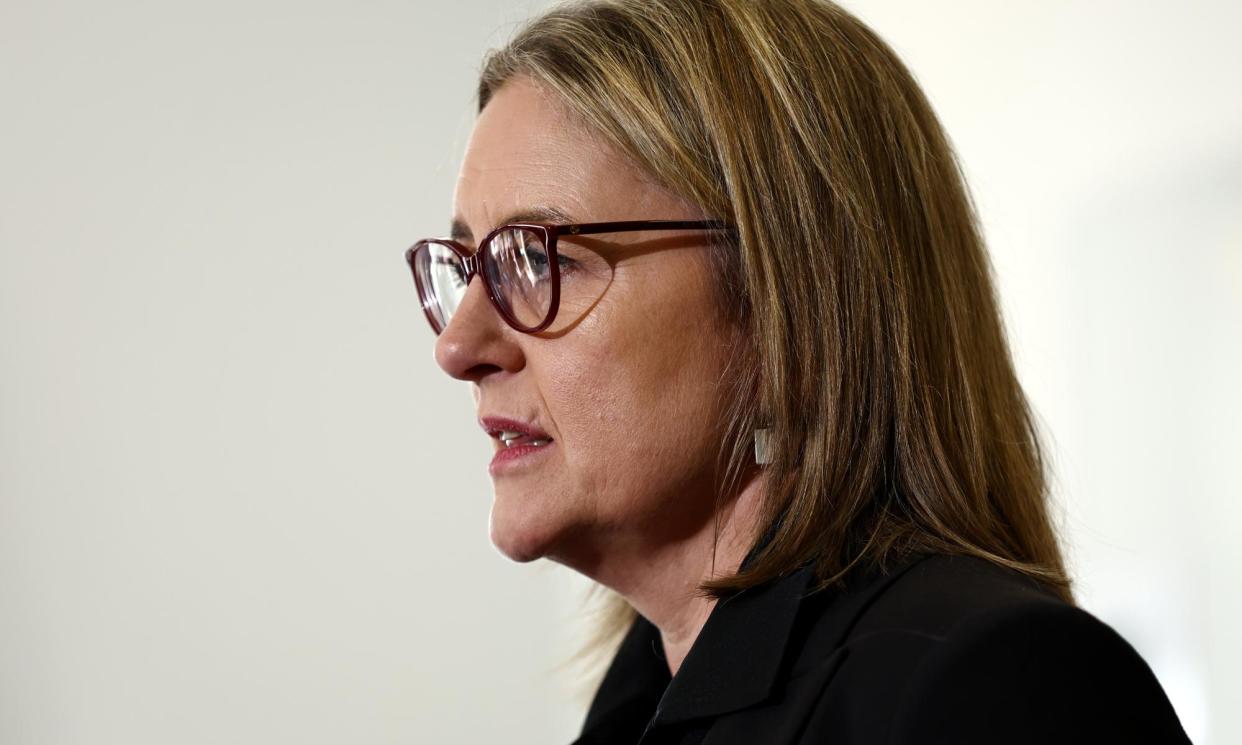Truth-telling ‘critical’ to treaty, Victorian premier says ahead of historic appearance at Indigenous-led inquiry

Ahead of a historic appearance at Victoria’s Indigenous-led truth-telling inquiry, the premier, Jacinta Allan, said Australia’s failed voice referendum had strengthened her resolve to help “present the facts” about the state’s history and inequalities faced by the First Nations people.
Allan on Monday will become Australia’s first state leader to provide evidence at an Indigenous-led truth-telling inquiry, which has the same powers as a royal commission. The Yoorrook Justice Commission is now holding public hearings investigating land injustice.
Last October, Australians rejected a proposal to enshrine an Indigenous advisory body in the constitution.
Speaking to Guardian Australia ahead of her appearance at Yoorrook, the nation’s first Indigenous-led truth-telling inquiry, Allan said after the referendum defeat she was “more determined to work incredibly hard”.
“There is absolutely a responsibility of government to present the facts,” she said.
Related: Truth, colonisation and Yoorrook: what is Victoria’s truth-telling inquiry and what will it achieve?
“In being leaders in the community, it is incumbent upon us to explain what we’re doing, why we’re doing it, why the impact of colonisation continues today to see such high levels of disadvantage across a whole range of different sectors: education, [the] justice system, health.”
Allan was unable to discuss specific evidence ahead of her testimony, but said she was “deeply humbled” to appear before the commission.
“The truth-telling process is such an important part, indeed, a critical part of treaty, of the treaty process,” she said.
“At times, that truth-telling has been challenging, challenging for governments, challenging for organisations and institutions, but it must be done because we can’t have treaty without telling the truth about how our state was colonised.”
Yoorrook’s findings are expected to inform Victoria’s treaty process. The state’s First Peoples’ Assembly – the democratically elected Indigenous body – will begin negotiating a state-wide treaty with the government this year.
Allan said the state government wanted to ensure Yoorrook’s evidence and findings reached many Victorians.
“There is also the opportunity for us as a government to think about how we promote this more, talk to people more, say ‘go and look at the Yoorrook website, watch videos on the impacts of dispossession of land and water, the impacts that came about from colonisation in our justice system today,” she said.
Yoorrook has a mandate to investigate and create a public record of the systemic injustice experienced by First Nations people in Victoria since colonisation, including inequalities that persist today.
It is due to deliver a final report by June next year that will make recommendations for reform and redress.
In an interim report, released last September, the commission recommended a major overhaul of the state’s child protection and criminal justice systems. The government’s response, released earlier this month, accepted four recommendations in full and 24 in principle. The government said another 15 recommendations were under consideration.
The government’s response sparked criticism from some Indigenous leaders, with the First Peoples’ Assembly arguing it showed the government was not moving fast or hard enough on reform ahead of treaty negotiations.
But Allan said Yoorrook’s reports and findings would be an important part of the state’s treaty negotiations.
Victoria is the furthest progressed jurisdiction in implementing the voice, truth and treaty elements of the Uluru statement from the heart at a state level.
Ahead of the voice referendum last year, the New South Wales premier, Chris Minns, flagged he was open to a truth-telling process, which is also under way in Queensland and Tasmania.
South Australia has committed to implementing a state-based treaty process before truth-telling.

 Yahoo News
Yahoo News 
